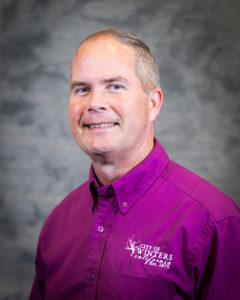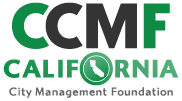 What inspired you to enter city management?
What inspired you to enter city management?
I am a third-generation City Manager: my father served as City Manager in a number of cities in Northern and Southern California and my grandfather was the County Manager of San Mateo County for 25 years and was the City Manager of Richmond, Virginia. I tell folks I have been in this business my entire life!
One big reason for wanting to enter city management was that I always loved the parks and public facilities (buildings and bridges) I saw my father working on. I also loved watching the impact he had on the communities we lived in. He was always involved in many meaningful things happening and I really wanted to have a career where I could make a difference. I love being a City Manager and what we do in local government and would not want to do anything else!
What was your path for becoming a City Manager?
My career took a very focused path up the city manager ‘career ladder.’ I began as an intern in the City Manager’s Office in Pico Rivera working on legislation and helping take care of the City Council. I later became an Administrative Assistant working in personnel, budget and redevelopment. I moved on to the City of Dana Point as the Assistant to the City Manager where I helped coordinate the startup and building of the organization and the contract city when the City incorporated in 1989. In 1994, I became the Assistant City Manager in Grand Terrace where I managed all city services, capital projects and operations. In 2001, I became the City Manager of Winters, where I have served for the past 15 years.
What do you enjoy the most about your role as a City Manager?
The greatest satisfaction I have as a City Manager is seeing the growth and accomplishment of the staff and City Council members I work with. I’ve learned that, to be a successful City Manager, you need to have successful staff—when they do great things, it is a reflection on the manager. As an Assistant City Manager, you focus on your individual accomplishments and becoming a ‘star’ in your organization. When you are the City Manager, it is all about making those around you the ‘stars’ in what they do. There is no greater satisfaction for me than when a Management Analyst, Mid-level Manager or a Department Head gets up at a City Council Meeting and just kills a presentation or takes the tough questions and holds their own on a project! I have learned that it really is all about them and my role is that of a coach, mentor and facilitator of really good people.
How do you feel the role of a City Manager differs from that of a Council Member or Mayor?
The City Manager is the one who makes the dreams, goals and aspirations of the City Council happen. We are the ones who guide the services of the city and make sure that the ‘business’ is running efficiently and effectively. The Manager needs to stay out of the politics of issues and focus on solutions.
The City Council needs to focus on the highest aspirations of the City. They need to be in the forefront of the community and help facilitate the politics of issues. The City Manager needs to be the ‘realist’ and help the City Council plan and make decisions that can be accomplished. As the City Manager, I am sometimes the one who tells the City Council what they do not want to hear. It is also my role to work with the staff on solutions to key issues and find opportunity which accomplishes the priorities of the Council.
Which city project are you most proud of during your time as a City Manager?
Without question, it is the revitalization of our Downtown. In 2001, half of the buildings were closed but the community still saw it as the heart of the town. Through redevelopment and a tremendous public and private effort, it is now thriving beyond anyone’s dreams. It has been the ultimate team effort! To see once-dilapidated buildings come back to life and the local business people thriving is a good feeling.
What do you feel are the greatest challenges facing City Managers in California today?
Succession management and the current exodus of really good talent who are retiring from all parts of local government. City management has been working diligently to develop the next generation, but there are more leaving the profession than coming up to fill key positions. The periodic recessions and the fiscal morass gripping local government created a huge void in the development of that younger talent we desperately need today to step in and take over. We need to make local government more attractive to students and young professionals and continue efforts to develop them.
When and how do you interact with the residents of your City?
I work in a small, rural, and very diverse farming community where access and accountability are constant. I am very active in all aspects of our town and make it a priority to meet with residents and businesses on their time. Mornings, evenings and weekends are always open and available for me to meet.
My wife and I are very active in the schools, Rotary, soccer, volunteer Fire, and other service clubs. I make it a point to be an active participant in my community and work to transcend just being the City Manager. In my experience, you learn a lot more about how you are doing at City Hall and what is important to people while on the soccer field than you do at any Council meeting. Periodically having a beer or glass of wine at the local brewery or winery with the locals is also important. It keeps everyone grounded!
How are cities shaping the future of California?
Cities ARE California. We are where the rubber meets the road and the place where all the greatness of our State actually occurs. We are the ones who shape the economy, partner with the private sector to generate jobs, and facilitate the infrastructure that will power the future.
I frequently tell our employees: We are in the business of where people live! People are born here, raise their families, create and run businesses, and generate the livelihood that powers the greatest State in our Union. As public servants, it is our job to make our communities great places to live and do business. As professionals, it is our duty to do our best to shape a positive future that will create sustainability and opportunity for all our residents.
